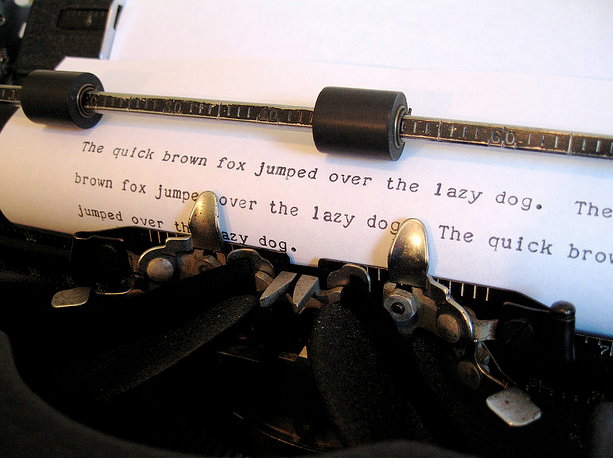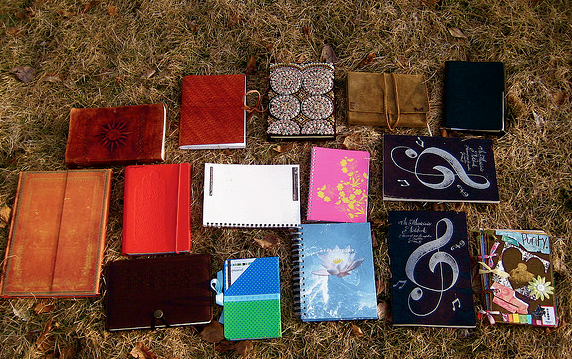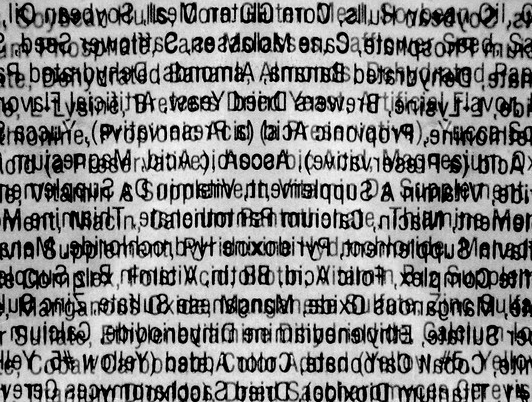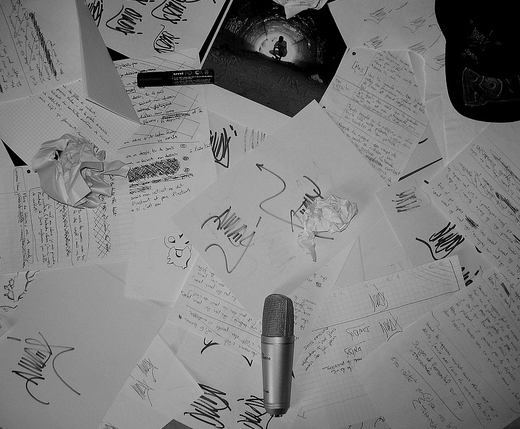Four Writers Explain How They're Writing Novels

Believe it or not, some percentage of the world’s population likes to write novels. (I’m one of them.) Or maybe “like” isn’t the best word, considering that it often feels more like a compulsion or an addiction, although there are more destructive compulsions or addictions, as we’ll explore in some detail below. To put a slightly more positive spin on it, novels are the LTRs of prose writing: never easy but on balance probably worth doing. (Although just to be clear: writing a novel, like being in a relationship, doesn’t make you “better” than anyone else, that’s for sure.) From a mechanical perspective, novels generally range from about 60,000 words to north of 200,000 or even more (the rule of thumb is 30,000 words equals 100 published pages) for a serious tome or “doorstop.” Which is a lot of words, and let’s not even talk about character and plot development and other novelistic “elements” that to get even sort of right will inevitably require excruciating amounts of time, revision and bouts of self-doubt and loathing, all to pay for those fleeting moments when our thoughts seem perfectly aligned with what appears on the page in front of us.
Okay, so writing a novel is probably harder than-I don’t know-mowing a plot of grass or doing the dishes, but can help you learn a few things about yourself and your place in the universe. Given that this is probably self-evident, a more interesting question for those writing a novel (or considering it) is how to manage your time, given that nine times out of ten it’s going to take at least a year or two at a minimum, even if you bang out a draft in National Novel Writing Month. I don’t know anyone these days (except for maybe “Name Withheld,” below) who isn’t already stretched well past the breaking point, given all the other crud we have to do, whether it’s paying for our existence in a most literal/financial sense, taking care of your family (however that’s defined) or maintaining a level of social interaction to keep from crossing into that nebulous (but okay, sometimes alluring) zone of insanity where one spends 99 percent of one’s waking hours in serious conversation with the cats.
With a thought to get some perspective, I asked four work-in-progress novelists about their philosophy regarding what might be called the day-to-day writing process. I conducted the interviews by email and asked the following questions:
1) How long have you been working on your novel and roughly how much longer you expect to go?
2) How do you “pay the bills”?
3) How do you balance work/friends/relaishes/family with your writing?
4) Do you have a routine and if so do you reward yourself for sticking to it (and does it involve cupcakes)?
5) Do you write longhand, on the typewriter, or on a computer (and is said computer online)?
6) Is there anything else about writing a novel that you’ve found to be particularly difficult/enlightening from a time-management perspective?
Below are the answers, which (at least as I see it) affirmed a few of my own ideas about writing, which can be helpful when you’re slogging through a rough patch. I think these writers convey a fundamental optimism in the venture, i.e., each describes the worth of doing something that must be done utterly alone but with the idea to bring us a little closer together. Or something like that.
BRIAN HURLEY
1) This novel? I think I started taking notes about 3 years ago, and started writing it in the current form about a year ago. At the rate I’m going it’ll take at least two more years. Which, by the way, fuck the rate I’m going. I need to improve it. 2) ______ (where I work full time) pays my bills. 3) I was thinking about your questions on a bus from upstate New York recently, and this was one of the two things I definitely wanted to mention. It’s important to make your close friends aware of what you’re writing, and how much time you need to dedicate to it. Because A) for those of us who have a day job, being a writer is like being a superhero — you often need to sneak away from other obligations and slip into your second identity. And B) your friends (if they’re good friends) will hold you accountable for your writing and encourage you to get it done. 4) I choose one or two nights a week to write at home, and I write on Saturday and Sunday mornings. I rarely manage to write at ALL of these times in a given week. But when it does happen, these are the times when it happens. 5) I’ve taken to splitting up my really “creative” time and my ruthless self-editing time. Like, on weekends, and on long voyages, I’ll carve out time to sit and ponder things, and take notes or write out passages longhand. Then, when I’m back at work or whatever, I do more of the nitpicking over words at the computer. It’s pretty much useless to try and “be creative” for half an hour in an otherwise jam-packed day. My mind needs more time to adjust. So I tend to separate the really imaginative stuff from the day-to-day polishing. Also, how I manage the distraction of being online: by really, really hating myself if I wander too far. By telling myself I’m a mindless little shit if I look at HTMLGIANT or NFL recaps for too long. By browbeating myself to within an inch of my life.
Next: “Capitalism really does a number on you.”

JENNIE PORTNOF
I’ve been writing my book for two years, and realistically it will probably take another year or so before it takes any kind of shape that I’m good with. I think there’s a correlation to a tremendous amount of stuff to do and sex and exploration and New York City and interesting, attractive people that makes or breaks a poet and writer. There really is nothing to do except pull things out of the continuous waterfall and utilize them. Really. I think if you can become aware of yourself here in any capacity, as an artist, a person, a human being, a writer or poet, you’re miraculous in and of yourself. Parties, readings, museums, art openings, music. None of these cost as much as a drug or drinking habit. You’re not really writing anything; you are being written… After freelancing for many years, I found my way to a job that was full time for 5 years before I was laid off and then rehired. I leave all my work at work and come home and write. I find working in general to be exhausting in mind and soul and body but something in me loves to feel useful and competent and “valued.” I have no problem working if I can write or paint; but it’s very hard to strike a balance. Capitalism really does a number on you. I’m actually writing at every moment, or gathering. Balancing? Who does that? The danger for me has always been total immersion and then flame-out and exhaustion. I’m just now starting to incorporate yoga et cetera into my world as a serious discipline. If you write or create in any way by default you are an outsider and obedient only to that source, it’s not dignified… you just are. It just takes a few singular human beings to stand up to you and call you out or support you in some way that makes you put down roots in your dreams. I’ve been blessed in that respect. Not one special person, but many. I really don’t think I understand this word, balance. I think I understand the word peace better and I feel at peace with my family after many years of being in a kind of war with them and everything. They are supportive of me, whatever I do and that was a long time coming. If you find something you love to do and it calms your mind or heart, like gardening, then you are in luck. It doesn’t get any better than that and that is fine. It took a fuck of a long time for me to be satisfied and deeply grateful for all these people who just showed up and had love and faith for me. There’s a kind of hunger where you start to eat yourself and if you have friends who make you laugh and who you love then you won’t be sad. It really is all about love. And the truly great ones are generous, remember that. If you ever meet someone you adore and they are not generous, they are also not really genius at whatever they do. They are putting you on. I write every day. Every single day, or I do something that nourishes that. I used to write one poem every day, or draw a little drawing or paint. And now it’s this book. I write on my laptop and I write longhand with a small notebook I keep in my pocket because writing that way you can actually feel all this great energy that sometimes a laptop can’t. You start a poem in one corner of the sky and you end up in another. I’m a little obsessed with the kind of pens I write with, that matters a whole lot. They have to be medium black gels or I have trouble with the flow. I like eating hard-boiled eggs and if I am having a very good day I like making deviled eggs, and I like snuggling with my animals. Or working in the garden or swimming with friends. The most enlightening and beautiful thing about writing this book has been the ecstasy of it. It’s a practical thing. You tap into it and the anxiety and fear and anguish, whatever you are carrying with you, maybe it’s an obsession with someone, maybe your heart is broken. I repeat: it’s very practical, it just means you don’t know anything for sure and I don’t fear failing and you become pretty fearless and kind in that respect, even if you aren’t kind most of the time you learn to be kind to yourself. And that’s a start. I think the other interesting aspect of all this is a very particular DIY aesthetic. I mean we’re building something out of nothing for the sake of doing it. And that involves community and language and secrets and Kinkos, and it’s always the same impulse, the same fire. And that is what is so beautiful about it. Whether you ever end up being canonical or not, you’ve touched the secret of the world. And if you don’t know what I am talking about scroll on by.
Next: “My book is already like 300,000 words and it has zombies and magic crystals that turn people gay.”

NAME WITHHELD
I’ve been working on my novel for four years, ever since I started temping at ____ and then got hired full-time as a copywriter. My job: writing bullshit little on-line catalog descriptions for products I wish didn’t even exist. What can I say? I’m pithy, ha ha. But it pays the bills and then some, plus I have health benefits (and an actual 401k), so shut up, ok? This is a secret, obviously, but my job usually takes me no more than an hour or so on any given day, and even after I procrastinate for three or four hours by reading blogs and watching YouTube videos, that means I still usually have two or three hours a day to write. If anyone ever asks me though, like in the hallways, I just say, “I’m swamped, you have no idea HOW SWAMPED I AM,” which is important in this economy: you obviously can’t flaunt that you have nothing to do. I guess you could say I’m in the closet about my writing, lol? I decided to start a novel about two months into my job because “working” in an office all day and just wasting time was making me feel disgusting, kind of the way you feel after eating like six or seven donuts on an empty stomach (not that I would know about that, lol), I wanted to kill myself, I wish I was kidding but I’m not. I don’t even think I have much talent for fiction but I felt like I had no choice in the matter. I never took “creative writing” in college, for example, and I don’t use tons of SAT words, because I don’t like to seem pretentious. My book is already like 300,000 words and it has zombies and magic crystals that turn people gay and a subplot where a bunch of office workers get cemented inside their office during a construction project and have to dig their way out through a tunnel under New York City, where they run into giant, radioactive insects. I don’t even know why I’m telling you this; it probably won’t ever get published but I don’t care, or at least I don’t worry about it. Obviously I have no idea when it’s going to be finished, probably never. I’m not writing to please anyone but myself. Honestly, I haven’t read a book that I like by a living author in maybe twenty years, so you can see where my head is at. I guess the thing is, if I can walk out of this job in ten or fifteen years and think, well, at least I wrote a novel, then I won’t feel like I lost my soul to this bullshit company, you know? I don’t think my company is worse than any other, by the way, I just hate them all. If I won the lottery I would quit working in two seconds and probably quit writing too, because who really needs it. I have a boyfriend, he works in a completely different industry and travels a lot, which means I have a lot of time to write at home, too. I just e-mail the file back and forth, which, yay G-mail. Except when I’m home I like to watch television, because I’m already tired from all the writing I do at work. My bf and I are both from Los Angeles and we only see our families like maybe once a year tops (THANK GOD) so that’s not a big distraction either. We’re never having kids, either, we already agreed about that, like on our first date. I guess my advice to other writers is just do it if you want and don’t stress-sometimes I write shit and it really does make me laugh, which I admit is kind of great-or don’t, I don’t care, whatever floats your boat, you know? You better not use my name or everyone’s going to think I’m mean and ungrateful (actually I don’t want to get fired, either), and sometimes I am mean and ungrateful, but usually it’s an act or a coping mechanism, we all have to do what we can to get by in this horrible piece-of-shit society right? And as you know I’m actually pretty friendly if you can get a beer or two in me, so there’s that.
Next: “If you focus on how many small steps are needed, you might be tempted to just quit and work on something else.”

ROBERT REPINO
WORK IN PROGRESS: My current novel began about a year ago; I began researching it in the fall of 2009. At the time, I had to gather notes about the structure of the story and on several topics that were unfamiliar to me, including the behavior of ant colonies and dog fighting techniques (don’t ask). I then began writing the manuscript around Christmas. I took a break to revise a different novel about the Caribbean, which had finally found an agent; this took up a large part of the spring and summer. I’m now back to the book; I’m approaching 40,000 words, and hope to have a completed draft by the spring. DAY JOB: I’m an editor with _____. THE BALANCE THING: I have a few advantages over other writers in this category. First, I’m single, which allows me to go wherever I want, to leave whenever I want, and to stay in and write whenever I want. I don’t have a protocol to follow regarding my social life. I have yet to set aside a particular day or hour for writing. Often, I justify an evening with my friends by saying that I just wasn’t feeling literary that day (“so why force it?”). I think it’s always okay to miss a day of writing if you are exercising, spending time with a loved one you don’t see very often, or dealing with some chore (paying bills, fixing something) that you have been putting off for a while. It’s not okay to miss a day of writing if you’re going to your eleventh office happy hour of the month. THE ROUTINE: I have a routine, but I don’t exactly recommend it. I am an insomniac, so I usually do not begin writing until at least 10:30; on a good night, I’ll finish close to 1:00 a.m., regardless of whether I have to work the next day. So many writers I know have endorsed waking a little after five, writing for an hour or two, going for a jog, and then going to work. If I could do that, my life would probably be better in so many ways besides the writing, but I just don’t think I could manage to do this for a sustained period of time. THE JOFRANZ/INTERNET DILEMZ: Ever since I was able to type more quickly than I could write (in other words, since I was a teenager), I have written creatively only with a computer. I’m still working on the distractions of Gmail and Facebook; they often get the best of me when I’m on my desktop. My laptop, however, is from 1998, and only has Windows 2000 on it. It’s so old that it has a piece of duct tape holding together a crack in the plastic. I use it on road trips, and it is too decrepit to support things like YouTube and the social media sites. I am probably most efficient when I’m on a bus, working on the ancient computer. GENERAL ADVICE: I’m still daunted by the length of a novel, and by the prospect of finishing it in some other season. On the one hand, allowing yourself just one hour a day will enable you to say you achieved some small steps; on the other hand, if you focus on how many small steps are needed, you might be tempted to just quit and work on something else. Often, I have to remind myself that even the nights spent revising should count as “creative” time; I think that’s hard for people to accept, especially when they hear stories about Jack Kerouac attaching a roll of paper to a typewriter and working for three straight weeks. Also, if you have been working on a novel for longer than you originally anticipated, and you have never once just forced yourself to stay in on a Friday night and work on it in your pajamas, it may be time to consider that course of action. It will probably be therapeutic, actually.
Matthew Gallaway lives in Washington Heights and is the author of the forthcoming novel The Metropolis Case
. Publishing School plans to take a look at “real-world” issues related to writing and publishing a book. Next up: Agents and the getting and keeping of them. Questions, comments, and ideas for future topics can be addressed to Matthew Gallaway at mattgallaway [AT] gmail [DOT] com.
Photos from Flickr, in order, by Seth Morabito, Jenna Carver, D Sharon Pruitt and Diwabado.
